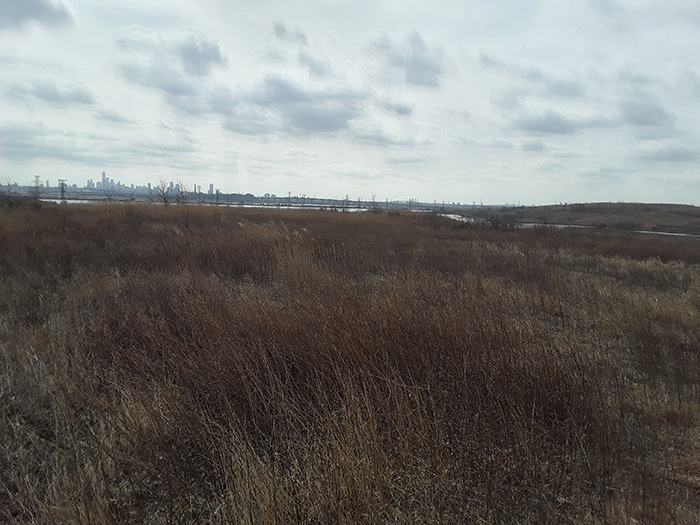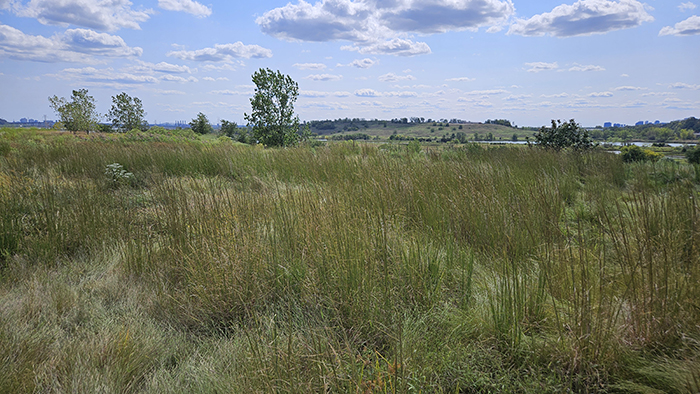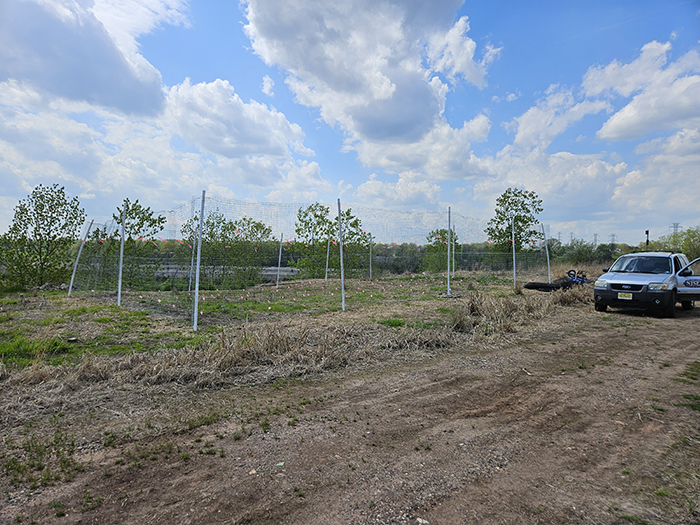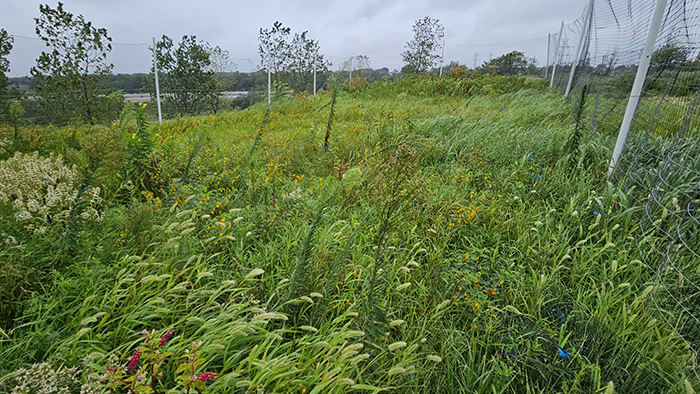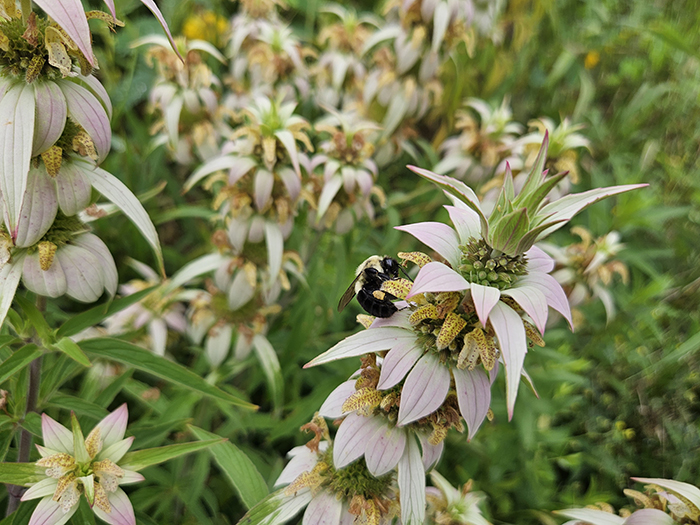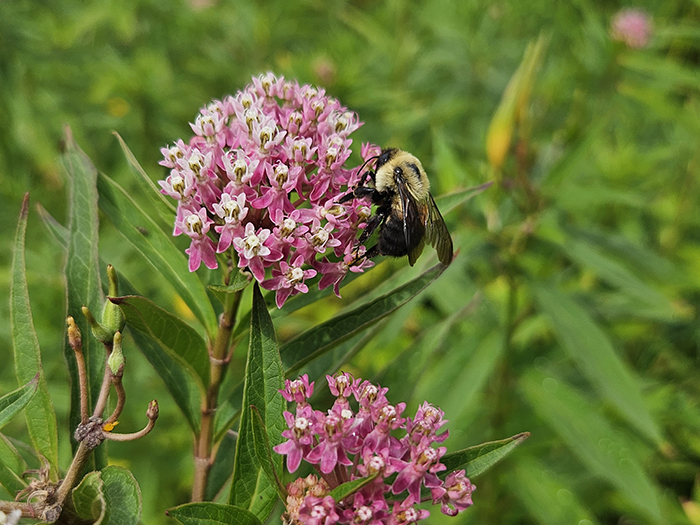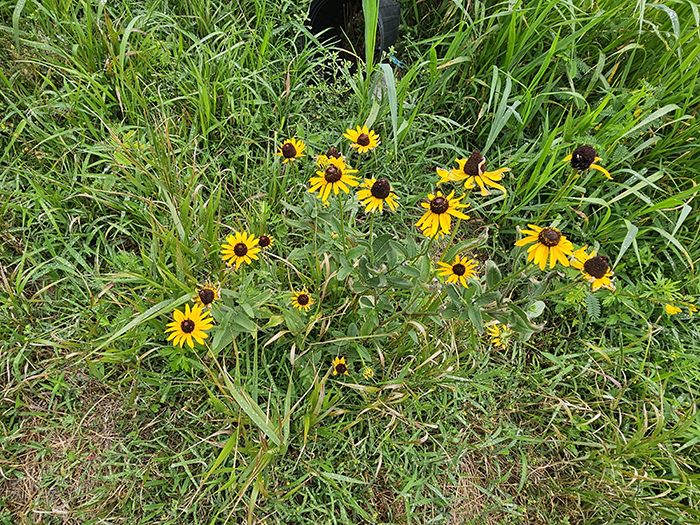Erie Landfill Grassland/Pollinator Habitat Enhancement
Our Projects
Project Lead
Aleshanee Mooney
Beginning in 2023, MRRI has undertaken a grassland enhancement project on the 38-acre Erie Landfill in North Arlington, NJ, to address the loss of native grasslands and create ecologically diverse habitats. Closed prior to 1970, the landfill is dominated by invasive species such as Phragmites australis and Artemisia vulgaris. The project aims to replace these invasive species with native grasses, shrubs, and wildflowers to benefit grassland birds, pollinators, and other wildlife. This initiative involves selective herbicide treatments, mowing, and finally reseeding with warm-season native grasses, shrub planting, and a pollinator habitat. Protective measures like deer fencing and weed management are also being implemented. In the first two years of the project, significant progress has already achieved. Native grasses like broomsedge (Andropogon virginicus) and purple lovegrass (Eragrostis spectabilis) are replacing invasive species, forming diverse mosaics that support wildlife for foraging, breeding, and migration. The pollinator habitat is successfully hosting blooming wildflowers, including beebalm (Monarda punctata), swamp milkweed (Asclepias incarnata), and black-eyed Susan (Rudbeckia hirta), attracting various insect pollinators. However, challenges such as herbivory, invasive plant encroachment, and limited water availability persist, prompting adjustments in ongoing management strategies. Shrub survival is improving with reinforced fencing and additional protections now in place. The project demonstrates the potential to restore ecological value to urban disturbed lands through proactive management. MRRI is building on this success by expanding efforts on Erie Landfill and developing strategies to alleviate the setbacks of 2024, including using a water trailer and better herbivory guards.
